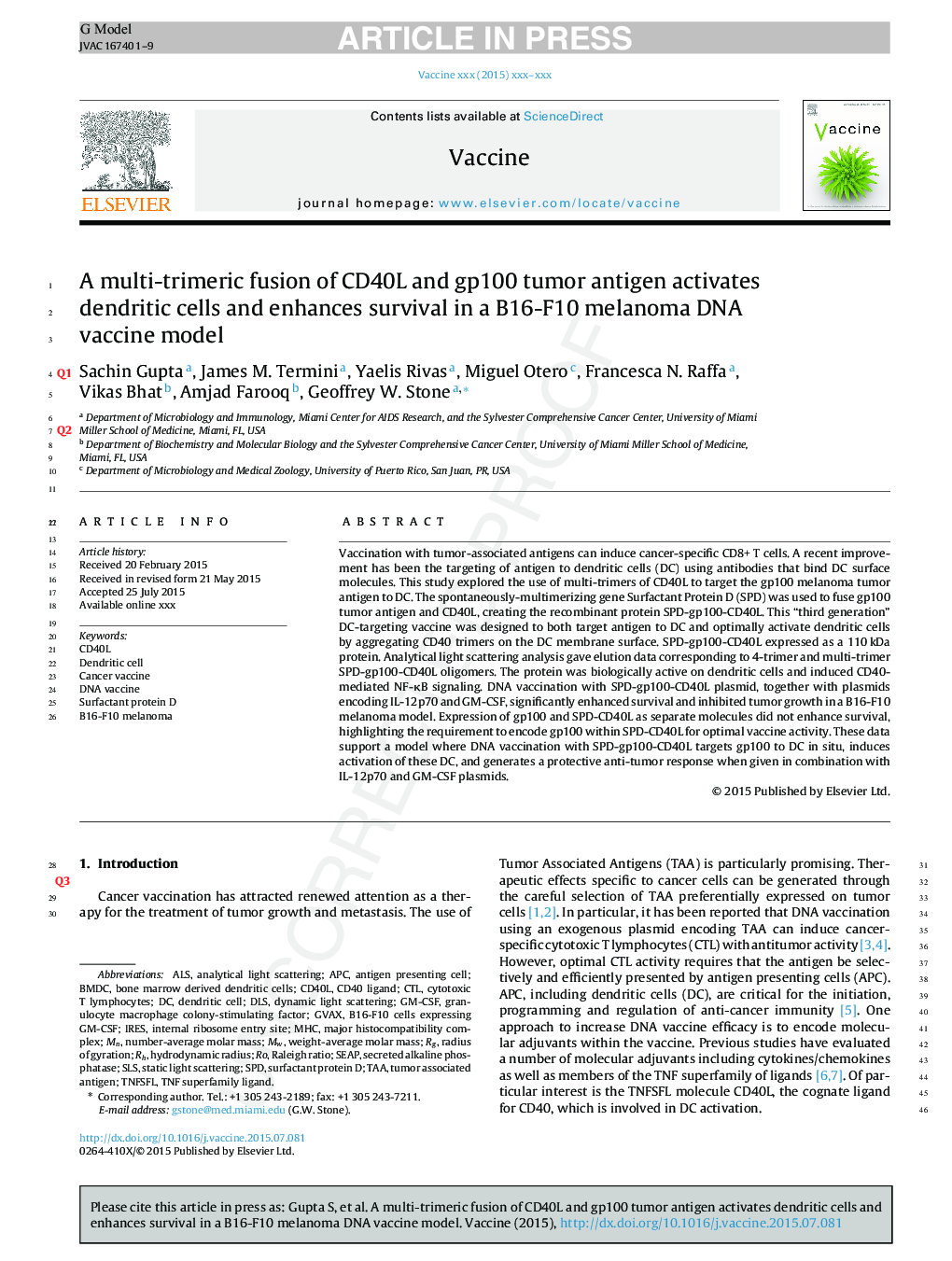| Article ID | Journal | Published Year | Pages | File Type |
|---|---|---|---|---|
| 10963536 | Vaccine | 2015 | 9 Pages |
Abstract
Vaccination with tumor-associated antigens can induce cancer-specific CD8+ T cells. A recent improvement has been the targeting of antigen to dendritic cells (DC) using antibodies that bind DC surface molecules. This study explored the use of multi-trimers of CD40L to target the gp100 melanoma tumor antigen to DC. The spontaneously-multimerizing gene Surfactant Protein D (SPD) was used to fuse gp100 tumor antigen and CD40L, creating the recombinant protein SPD-gp100-CD40L. This “third generation” DC-targeting vaccine was designed to both target antigen to DC and optimally activate dendritic cells by aggregating CD40 trimers on the DC membrane surface. SPD-gp100-CD40L expressed as a 110 kDa protein. Analytical light scattering analysis gave elution data corresponding to 4-trimer and multi-trimer SPD-gp100-CD40L oligomers. The protein was biologically active on dendritic cells and induced CD40-mediated NF-κB signaling. DNA vaccination with SPD-gp100-CD40L plasmid, together with plasmids encoding IL-12p70 and GM-CSF, significantly enhanced survival and inhibited tumor growth in a B16-F10 melanoma model. Expression of gp100 and SPD-CD40L as separate molecules did not enhance survival, highlighting the requirement to encode gp100 within SPD-CD40L for optimal vaccine activity. These data support a model where DNA vaccination with SPD-gp100-CD40L targets gp100 to DC in situ, induces activation of these DC, and generates a protective anti-tumor response when given in combination with IL-12p70 and GM-CSF plasmids.
Keywords
B16-F10 melanomanumber-average molar massBMDCSEAPCD40LIRESGM-CSFAPCDLSSPDTAACTLSLSSecreted alkaline phosphataseTumor associated antigenALSweight-average molar massinternal ribosome entry siteDendritic cellbone marrow derived dendritic cellsantigen presenting cellRadius of gyrationHydrodynamic radiusCytotoxic T lymphocytesCD40 ligandgranulocyte macrophage colony-stimulating factorMHCmajor histocompatibility complexDNA vaccineCancer vaccinestatic light scatteringDynamic Light ScatteringSurfactant protein D
Related Topics
Life Sciences
Immunology and Microbiology
Immunology
Authors
Sachin Gupta, James M. Termini, Yaelis Rivas, Miguel Otero, Francesca N. Raffa, Vikas Bhat, Amjad Farooq, Geoffrey W. Stone,
